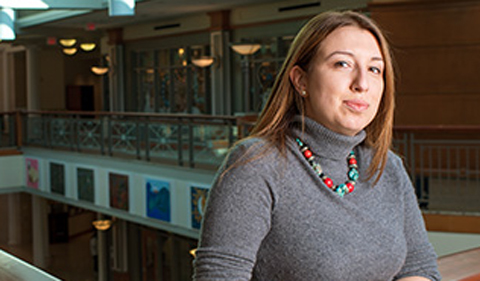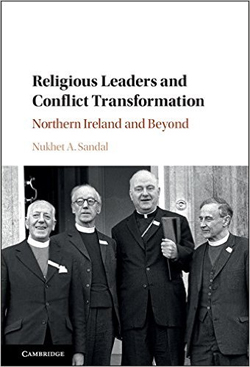
Dr. Nukhet Sandal
Dr. Nukhet Sandal published a new book, Religious Leaders and Conflict Transformation: Northern Ireland and Beyond from Cambridge University Press. Sandal is Assistant Professor of Political Science and Director of War & Peace Studies Program at Ohio University. Sandal’s book investigates the role of religion in contemporary political conflicts, based on her extensive field research in Northern Ireland.
 Religious dimension of contemporary conflicts and the rise of faith-based movements worldwide require policymakers to identify the channels through which religious leaders can play a constructive role. While religious fundamentalisms are in the news every day, we do not hear about the potential and actual role of religious actors in creating a peaceful and just society. Countering this trend, Sandal draws attention to how religious actors helped prepare the ground for stabilizing political initiatives, ranging from abolition of apartheid (South Africa), to the signing of the Lome Peace Agreement (Sierra Leone). Taking Northern Ireland as a basis and using declarations and speeches of more than forty years, her book builds a new perspective that recognizes the religious actors’ agency, showing how religious actors can have an impact on public opinion and policy making in today’s world.
Religious dimension of contemporary conflicts and the rise of faith-based movements worldwide require policymakers to identify the channels through which religious leaders can play a constructive role. While religious fundamentalisms are in the news every day, we do not hear about the potential and actual role of religious actors in creating a peaceful and just society. Countering this trend, Sandal draws attention to how religious actors helped prepare the ground for stabilizing political initiatives, ranging from abolition of apartheid (South Africa), to the signing of the Lome Peace Agreement (Sierra Leone). Taking Northern Ireland as a basis and using declarations and speeches of more than forty years, her book builds a new perspective that recognizes the religious actors’ agency, showing how religious actors can have an impact on public opinion and policy making in today’s world.
Prominent scholars of religion and international relations welcomed Sandal’s book, noting the need for conversations surrounding issues of religion and peace-building. Ron Hassner, professor of political science at UC Berkeley and the author of Religion on the Battlefield (Cornell University Press, 2016), stated that Sandal’s book is “empirically rich, compelling, and exciting, a fascinating contribution to the study of religion and current affairs”. Daniel Philpott, professor of political science at University of Notre Dame and the author of Just and Unjust Peace (Oxford University Press, 2012) says that “carefully argued and thoroughly evidenced, including through extensive conversations with these very actors, Sandal’s study promises to change the conversation about religion, politics, and peace”. Jeffrey Haynes, Director of the Centre for the Study of Religion, Conflict and Cooperation, London Metropolitan University calls Sandal’s work “groundbreaking” and advises that everyone an interest in conflict, conflict resolution and peace-making should read her book.
















Comments